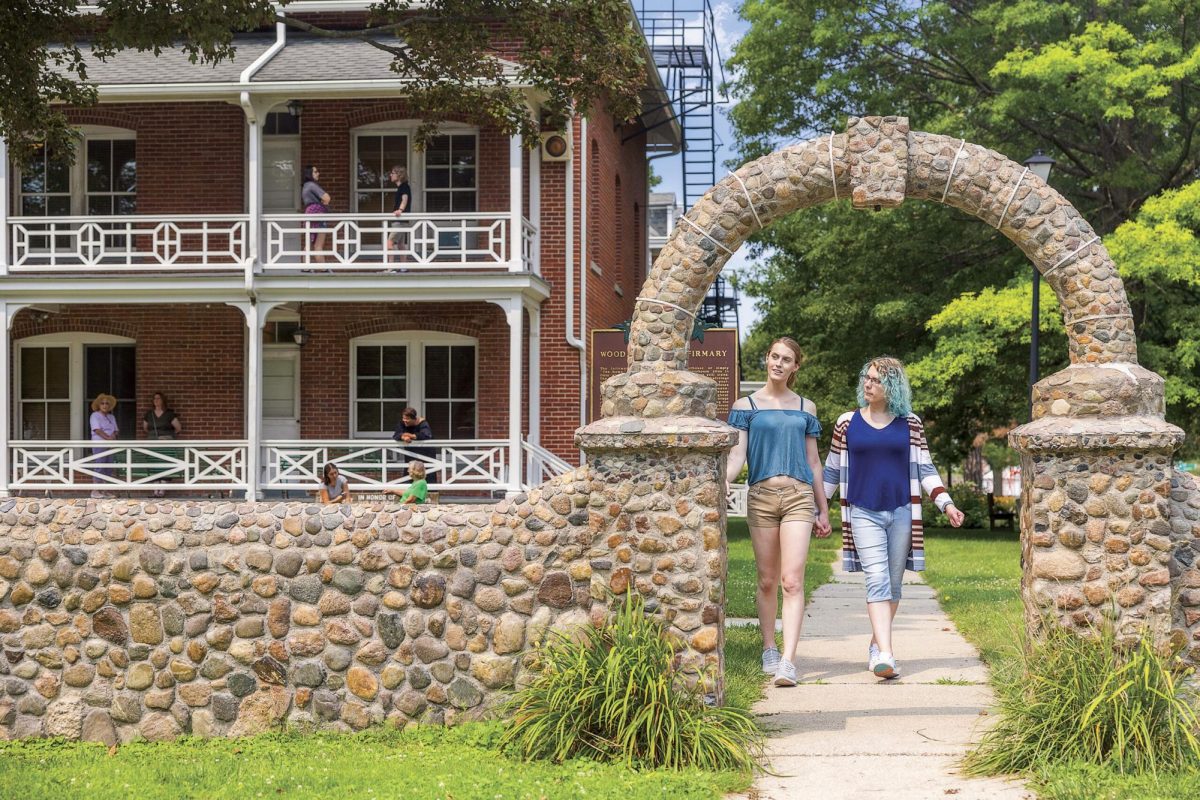Online classes offer students a variety of opportunities with varying advantages and disadvantages.
Dave Haus, a professor in the history department, said online courses do not replace the values students learn in the classroom.
“It has its own advantages that are unique to that format,” he said.
The course content is the same, but the means of communication is different, Connie Molnar, Director of the Distance Education program, said.
One of the biggest advantages in taking a course over the Internet is the convenience and flexibility. Students who travel, have jobs, or have families to take care of, can take classes during their free time.
In the 2006-2007 school year, 5,000 students were enrolled in online classes, Molnar said. Now that it’s so convenient for so many different people’s schedules, more people are willing to try for a degree or finish one they started before, Molnar added.
“I have a family, I work full-time,” said Amy West, a student in the Advanced Technological Education program.
West is looking to finish up coursework she started with community classes. She said she is able to finish coursework at eleven o’clock at night, very early in the morning, or during her lunch break.
The problem with so much flexibility is students need to be self-motivators to meet deadlines.
“If you’re going to do this, you’re going to have to be very independent and motivated,” West said.
Christopher Mruk, a Natural and Social Sciences professor at Firelands, said students who are unable to set a schedule and maintain it could get lost or fall behind.
“Online courses, I think, require a higher level of maturity on the part of the students,” he said.
Kerry Foster, a student, attested to that. When you’re in an online class you don’t have the professor in front of you, reminding you about deadlines, she said.
“You really have to be motivated to prepare for the class,” Foster said.
Another aspect of learning that is lost in the absence of a traditional classroom is the immediate presence of the instructor and other classmates.
Students have to work harder to communicate with their professor and one another.
Lack of a constant presence is also hard on some of the teachers. Mruk and Haus said they really have to rely on students to let them know when they are lost or confused.
“All those non-verbal cues are gone,” Mruk said.
Mruk and Haus encourage their students to immediately e-mail their professors when there is a problem. Both of them try their hardest to get back to students within 24 hours.
On the other hand, the lack of a traditional setting can really be beneficial to students. In both Mruk’s and Haus’s experience, shy students are far more willing to participate in discussions online than in a classroom. Students who are fearful of embarrassment or ridicule in a normal classroom can freely express thoughts and opinions during online discussions.
According to Haus, the discussion is on a more equal field than in a classroom. Since the discussions are written, more shy and quiet students have the same opportunities to be heard as the louder, more involved ones. He also said teachers have a tendency to dominate the conversation. This way, students can have more of a chance to discuss among themselves more freely instead of 50 minutes per day, three times per week.
Because many of the class discussions tend to be more student-based, students also have the opportunity to meet and converse with students from around the world.
“They could be across the Atlantic Ocean,” Haus said. “I’ve had students from England, from France, different parts of Africa. I’ve had deployed soldiers.”
Another advantage is online courses provide a great way to catch up on classes if students fall behind. Students who take a semester off for an internship can take online classes during the semester or the summer and still be able to graduate on time, Haus said.
West said taking one or two classes during the summer somewhat sped up the process.
Sometimes students like to work during the summer, and instead of coming back to campus for summer courses, they can simply do their work online, Haus said.
Because the majority of work is online, however, students must have certain programs downloaded to be able to run the applications. But, according to Haus and Foster, the programs are all available online and they’re all free.
On first day of class, along with the syllabus, you get a list of programs, Foster said.
“Any program you need you can download for free off the Internet, at least in all the classes I’ve taken,” she said.
The process of getting course information, such as notes and lectures, is getting easier all the time, Haus said. Some classes are using sound files to record lectures students are able to download into iTunes. Haus said he tries to make the programs as easy to understand and use, and as interesting as he can.
Foster said it’s nice to be able to listen to lectures more than once, in case there were confusing aspects to it.
Mruk added classes need to be correctly transferred to the online environment.
“The topic has to be crafted for the environment,” he said.
The next step to online teaching would be podcasts and audio files. Haus would also like to try to get BG eXperience and some graduate courses online.
“Some of the first distance educators were using radio,” Haus said. Now, everything that they wished they could do for students is finally happening.


















